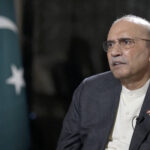
ISLAMABAD:In a move critics call hasty and constitutionally contentious, the President of Pakistan on Friday issued an ordinance establishing the National Agri-Trade and Food Safety Authority (NAFSA), merging two key federal departments into a centralized body. Legal experts and provincial leaders have raised alarms, warning that the ordinance undermines the 18th Amendment, which devolves powers over food safety, agriculture, and livestock to the provinces. According to them, the federation cannot legislate on these subjects without provincial consent.
The ordinance, effective immediately, abolishes the Department of Plant Protection (DPP)—the designated National Plant Protection Organization (NPPO) under the International Plant Protection Convention (IPPC)—and the Animal Quarantine Department (AQD), responsible for preventing the entry of foreign animal diseases. Their functions will now be consolidated under the newly formed NAFSA, headquartered in Islamabad, with authority to establish regional offices.
NAFSA will operate as a statutory corporate body, akin to provincial food authorities. Policy oversight will rest with a board chaired by a Prime Minister-appointed individual possessing at least twelve years of experience in food safety, agronomy, public health, or trade. Notably, qualifications in entomology, plant pathology, or plant protection have been excluded—raising concerns that the new authority will lack focus on biosecurity functions. “Their entire focus seems to be export certification, ignoring plant and animal quarantine, which is fundamental to food safety,” a biosecurity expert said.
The board will include provincial secretaries of agriculture, food, and livestock departments; federal representatives from food security, climate change, commerce, science and technology, and finance ministries; two women experts in food safety; two academic or research institution members; and three industry representatives including from the Federation of Pakistan Chambers of Commerce and Industry (FPCCI). Technical experts fear that the board’s majority of non-technical bureaucrats could undermine scientific decision-making. The Director General of NAFSA will serve as ex-officio, non-voting secretary.
NAFSA has been granted sweeping powers to implement sanitary and phytosanitary (SPS) measures across Pakistan. These include registration and regulation of food and pesticide businesses, enforcement of quarantine measures, certification of import/export consignments, and nationwide oversight of food safety. The Authority can accredit laboratories, monitor pest-free zones, conduct veterinary diagnostics, and impose penalties. It is also empowered to outsource functions, levy service fees, hire consultants, and seek funding from both domestic and international sources.
Crucially, NAFSA will regulate inter-provincial trade and enforce harmonization of provincial laws with federal SPS standards. While the ordinance mandates provincial coordination, it upholds federal supremacy. Provinces must submit annual control programs and adopt NAFSA’s policy directives. In case of disputes, advisory and scientific committees constituted by NAFSA will have the final say—raising fears that provincial autonomy in food and agriculture governance could be curtailed.
“It is ironic that President Asif Ali Zardari—who championed the 18th Amendment—is now facilitating its rollback,” said a source from Hyderabad. “Food safety and agriculture are provincial domains. This move undermines both the letter and spirit of the Constitution.”
Each province already operates its own food safety authority under independent legislation: The Punjab Food Authority (2011), Sindh Food Authority (2016), KPK Food Safety Authority (2014), and Balochistan Food Authority (2014). Experts warn that NAFSA will replicate existing functions, create jurisdictional confusion, and increase regulatory costs for businesses.
The ordinance also poses risks to international trade. The IPPC and World Organisation for Animal Health (WOAH) require official government quarantine departments—not corporate bodies or private contractors—for biosecurity certification. Only designated civil servants are allowed to perform inspections.
Surprisingly, the government kept the ordinance hidden from the Council of Common Interests (CCI)—the primary federal-provincial coordination forum. Experts say the ordinance bypasses democratic process and ignores stakeholder consultation. “A law with such far-reaching implications should have gone through the Parliament,” said a legal analyst, while talking to Profit.
The new Authority will be funded through a non-lapsable fund comprising federal budget allocations, donor assistance, service fees, penalties, and income from consultancies. It will be audited annually by the Auditor General of Pakistan, with additional audits permitted by the federal government.
Despite assurances, the ordinance has reignited the debate over federal-provincial balance in Pakistan’s post-18th Amendment constitutional setup. Legal and political challenges are expected as provinces assess its implications.
Critics also point out that similar proposals to restructure the DPP and AQD into a centralized authority were rejected during Nawaz Sharif’s government after extensive review. That administration prioritized strengthening DPP port infrastructure and hiring inspectors rather than dissolving the departments.
Although coordination mechanisms such as the National Biosecurity Technical Committee, National Plant Health Committee, and National Food Safety Committee were established in August 2024 to improve collaboration without compromising jurisdiction, insiders claim vested interests are now driving the push for NAFSA.
“It’s about handing control to private players,” said a source familiar with the development. “A few influential officials in the Prime Minister’s Secretariat and Ministry of National Food Security and Research are working behind the scenes to benefit companies they are connected with.”
The post A new National Agri-Trade and Food Safety Authority gets approved, older ones scraped amidst concerns over provincial autonomy appeared first on Profit by Pakistan Today.
